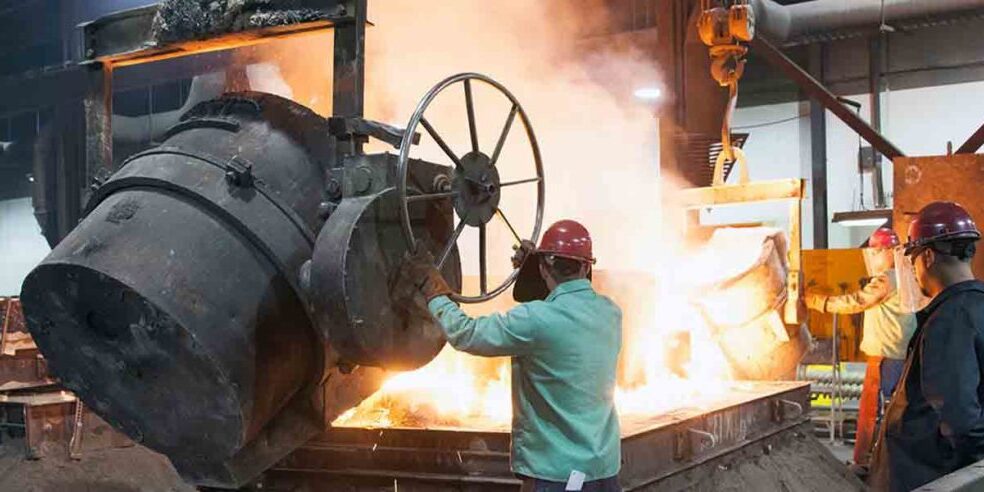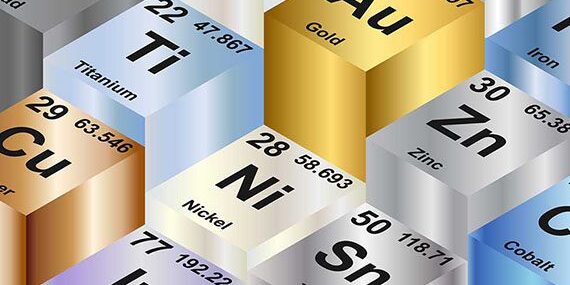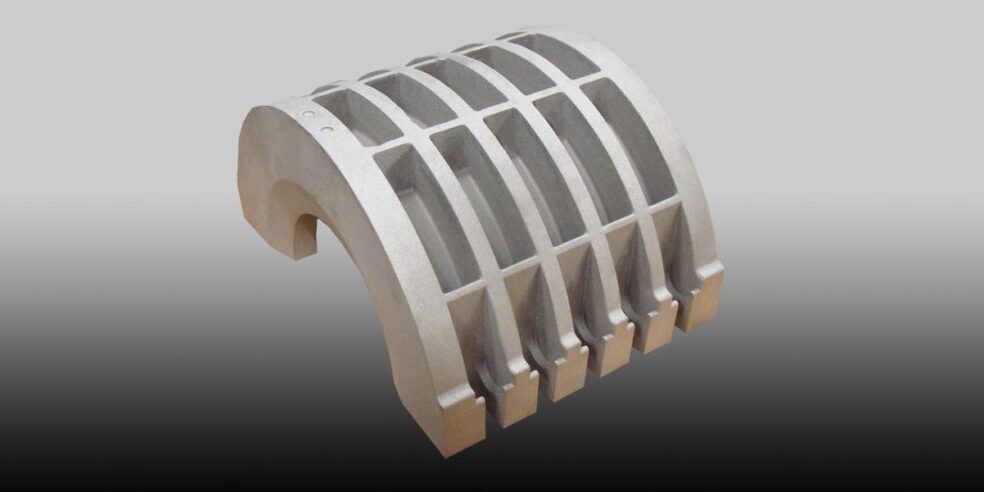Blog What Is Austenitic Stainless Steel?
By: Dave Olsen
Stainless steel material is a form of steel that contains significant amounts of chromium, nickel, often manganese, molybdenum, and nitrogen as a supplement to the iron base. The addition of nickel is key to otherwise ferritic chrome-iron alloys. This can yield predominately austenitic alloys. The microstructure change brings a marked increase in ductility and toughness.
The family of austenitic stainless steels is, by far, the most widely used of the stainless alloys in industrial markets. That is because corrosion resistance provided by austenitics is generally the best of all standard stainless types. Stainless steel materials are non-hardenable (hardness ranges 130 to 200 BHN), non-magnetic to slightly magnetic, and readily weldable and machinable.
What Is Austenitic Stainless Steel Used For?
- Piping
- Flanges
- Fittings
- Sink rolls
- Bearings
- Impellers
- Shaft sleeves
- Pressure vessels
- Heat exchangers
- Centrifuge bowls
- Pulp & paper rolls
- Pump & valve components
- Downhole rigging equipment
- Chemical & processing equipment
As workhorse alloys, each offers some slightly different performance expectations:
- CF8 (MTEK 304) combines strength and ductility with good corrosion resistance at relatively low cost. The alloy retains high impact strength to -400ºF / -240ºC. This general purpose corrosion resistant alloy used for flanges, rolls, sleeves, marine and sanitary fittings and valve parts.
- CF8M (MTEK 316) offers resistance to reducing corrosives and chloride pitting attack due to an addition of molybdenum. Like CF8, this alloy has good machinability, but requires re-annealing after welding for maximum corrosion resistance. The presence of controlled ferrite, CF8M exhibits stress corrosion resistance superior to wrought material of the same alloy. Uses include evaporator parts, marine fittings, pump parts, rolls, flanges and valve parts.
- CG8M (MTEK 317) provides exceptional strength combined with corrosion resistance. This alloy delivers cost effective performance in more highly stressed components operating in chemical processing equipment such as centrifuge bowl shells and parts.
- CN7N (MTEK 20) delivers especially good resistance to sulphuric acid and many reducing chemicals. It resists hydrochloric acid, and chloride salt solutions. Excellent machinability and fait welding characteristics. Well suited for flanges, rolls, pump parts, ball valve bodies and parts, and centrifuge parts for chemical processing.
Advantages of Austenitic Stainless Steel
Austenitic stainless steel is widely used due to its unique combination of properties that make it suitable for demanding applications. Here are some of the key advantages:
1. Corrosion Resistance
Austenitic stainless steels provide excellent corrosion resistance in various environments, including acidic, alkaline, and chloride-containing solutions. This makes them ideal for chemical processing and marine applications.
2. High Toughness and Ductility
These alloys maintain their toughness at both elevated and cryogenic temperatures. With their exceptional ductility, they can withstand deformation without cracking, which is critical in pressure vessels and piping systems.
3. Ease of Fabrication
Austenitic stainless steel is known for its machinability, weldability, and formability. It can be easily welded and shaped into complex geometries without losing its mechanical properties. This makes it a preferred material for custom components and intricate designs.
4. Non-Magnetic Properties
Most austenitic stainless steels are non-magnetic, making them suitable for applications where magnetism is undesirable, such as electronic equipment or sensitive scientific instruments.
5. Heat and Oxidation Resistance
Austenitic grades offer excellent resistance to oxidation and scaling at high temperatures, making them suitable for furnace components, heat exchangers, and other high-temperature applications.
Austenitic stainless steels are the backbone of countless industrial applications, offering an ideal combination of corrosion resistance, strength, and versatility. With a wide range of alloy options, they meet the demands of industries ranging from chemical processing and marine environments to pulp and paper production. Choosing the right alloy for your application ensures long-lasting performance and reliability in even the most challenging conditions.
With unmatched expertise and a proven track record, we help customers achieve their performance and durability goals. Contact our team today to learn how MetalTek can provide the right solution for your application.



